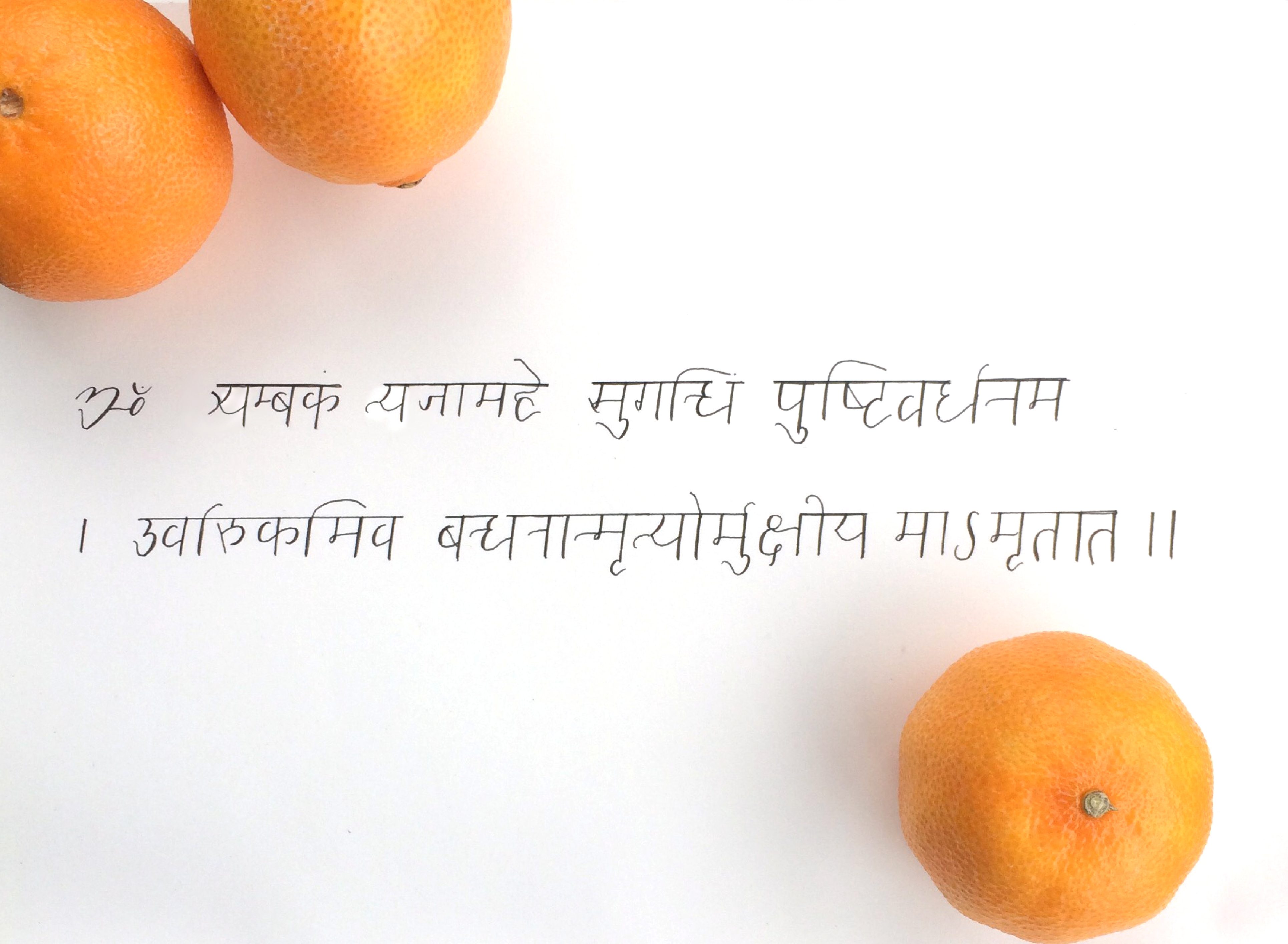 Sanskrit scholar Nicolai Bachman is coming to Moksha Yoga Riverwest Fri-Sun, Feb. 7-9 for a weekend of Sanskrit, Mantra, Yoga Philosophy and to perform a Vedic Fire Ceremony. It may not sound like your average yoga workshop, but in this brief interview with ILLUMINE writer Jaclyn Bauer, Nicolai offers insight into the importance and value of chanting and mantra recitation. Take a glimpse into the vastness of knowledge that Nicolai will share over the course of this weekend workshop.
Sanskrit scholar Nicolai Bachman is coming to Moksha Yoga Riverwest Fri-Sun, Feb. 7-9 for a weekend of Sanskrit, Mantra, Yoga Philosophy and to perform a Vedic Fire Ceremony. It may not sound like your average yoga workshop, but in this brief interview with ILLUMINE writer Jaclyn Bauer, Nicolai offers insight into the importance and value of chanting and mantra recitation. Take a glimpse into the vastness of knowledge that Nicolai will share over the course of this weekend workshop.
JB: What is the value in chanting rather than just reading Sanskrit?
NB: The benefit of chanting (like music) has to do with the fact that there’s a lot more vibration going on. Almost anything you chant in Sanskrit is going to have a positive effect on your system: there is very little in the tradition that we have access to that is negative. Almost everything [within the yogic tradition] is related to connecting to your divine inner self, often through a divinity, or learning one of the sciences, in which case it’s more informational but still positive.
Also, when you chant repeatedly out loud, the rhythm, vibration and resonance starts to settle into your system. Then you begin to do more mental recitation and you won’t need to chant out loud any longer. This is especially true of Vedic chanting: I notice that if I begin the day doing Vedic chanting, then I have that Vedic chant cycling through my head all day. It has an effect on my conscious and subconscious without my having to do anything.
JB: Can the teaching and transmission of energy and knowledge still be positive if a teacher or student is unaware of what he/she is chanting or why?
NB: Yes, it’s valuable as long as it’s pronounced properly (said with a pure smile, half-jokingly and yet entirely seriously) it’s going to be beneficial. I think it’s important to know the basic meaning, but part of the science of mantra is to get the mind out of the picture. You want the sound and vibration to do the work. There’s a certain amount of faith going on. Some people like to learn Sanskrit so that they can believe [a teacher about] what the chant means; then some people (Bhakti yogis in particular) will just do the chant and trust what it means.
JB: You’ll be focusing on the Gayatri Mantra in one of your sessions at Moksha. Why the Gayatri Mantra?
NB: The Gayatri Mantra is the most chanted mantra in India: it’s done at sunrise and sunset by millions of people, yet you wouldn’t know its depth just by looking at it.
The Gayatri Mantra honors the sun. The sun on the outside provides light, life and heat to our planet. The outer sun is a symbol of the sun inside of each of us. Our divine inner light of awareness provides our life and our illumination, but it’s not a visible illumination. On the inside, the illumination is a sort of divine flame.
The relationship between the outer sun and the inner sun is central to the Vedic teachings. When you honor the sun on the outside, you honor the sun on the inside. You have to remember that whatever outer form you seem to being worshipping, there’s always a correlating inner form. We get caught up in the inner stuff, but if you can see the inner within the outer, then you don’t get as caught up in it.
JB: Everybody gets really amped up every year for the fire ceremony that you do at Moksha Yoga Center – it’s an extremely transformative and communally uplifting experience. Can you share anything about what you do, why you do it and the significance of why anyone should participate?
NB: The purpose of the Fire Ceremony has a similar purpose to chanting. In the Fire Ceremony you are offering something into the fire on the outside, and you can correlate that to offering food to your body and your digestive fire. When you are offering something, you are letting something go into the fire and the fire is transforming it. The rice you are throwing in the fire is symbolic of offering something that you want transformed [by the fire], [sending] some message that you want sent to someone, or of something you want to get rid of. You can use it to do any of those things. It’s always related to the fire on the inside too, though.
JB: Why should people study Sanskrit, Yogic Philosophy and the more esoteric teachings of the East?
NB: Yoga is primarily about self-transformation, its’ about changing yourself into a more refined, happier person [who is] more connected to who you are. Asana helps with that on a physical level, and pranayama on the level of breath. Mantra, [though] has a similar purpose as the last three limbs of yoga: the mantra can be your object of meditation. The things that I teach are a little deeper than the physical practice and it’s very important, if people want a broad understanding of what yoga is, to be exposed to these teachings.
Nicolai Bachman travels the world sharing the knowledge of yoga with people wherever he goes. If you can’t make it to the upcoming workshop at Moksha Yoga Riverwest, Fri-Sun, Feb.7-9, Nicolai will be hosting a residential retreat in Santa Fe, Jul. 1-7 on the Yoga Sutras and Mantra. Immerse yourself in the yogic culture and find personal independence and freedom as you eat, drink and sleep the Yoga Sutras, with Nicolai as your guide.
Learn More about Nicholai Bachman
Register here
Jaclyn Bauer is a freelance writer and editor, as well as a devotee of yoga philosophy. In other lives she is the Head of Social Media at b. A Salon on Armitage, a yoga teacher and a graduate student at DePaul University. Ever since she first learned how to craft letters, words and sentences she has dreamed of taming these words and becoming a published writer. Her greatest hope is to induce inspiration and change lives with her work, She has been published in Yoga Chicago, elephant journal, The DePaulia and Ink Well Magazine. jaclynannbauer@gmail.com.
























No Responses to “Sanskrit Scholar, Nicholai Bachman, returns to Chicago”